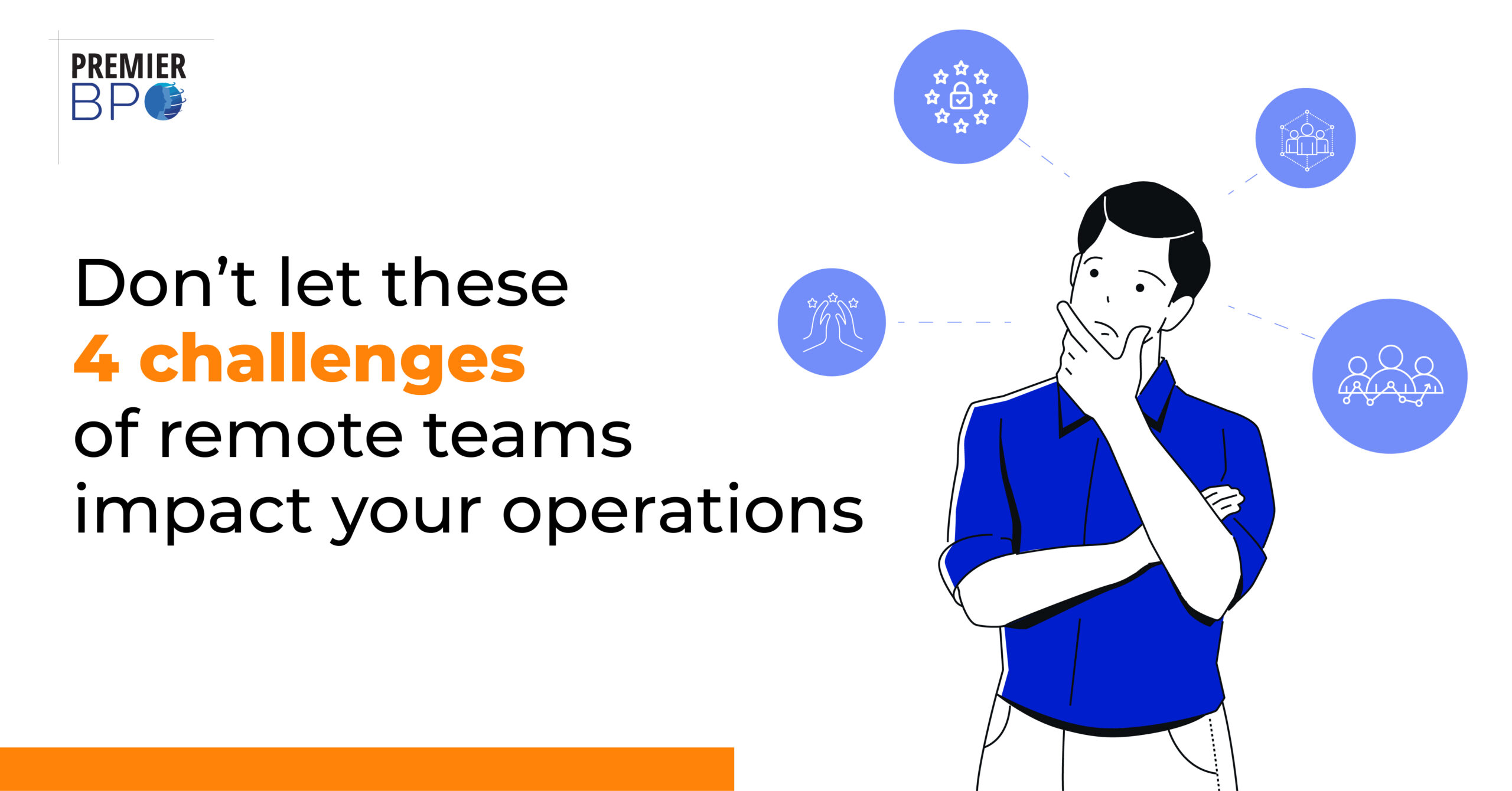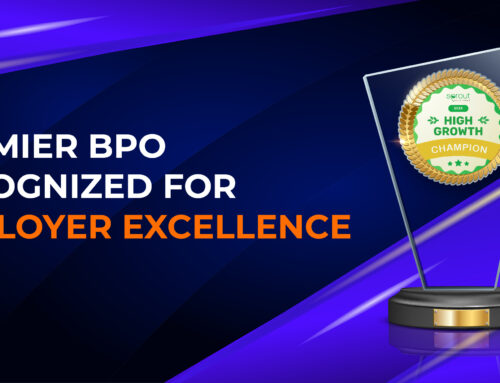While virtually every company was forced to go remote and is still maintaining a remote workforce environment, that doesn’t mean it is easy to manage or efficient. There are a number of challenges in managing a hybrid workforce. The good news is that with an outsourcing partner, you can overcome challenges and continue to extend your capabilities.

Challenges of an In-House Hybrid Workforce and Outsourcing as the Solution
1. Communication and collaboration:
Effective communication and collaboration can be challenging in a hybrid work setting. A survey by Slack found that 49% of employees face challenges in maintaining effective communication while working remotely. To overcome these challenges, outsourcing partnerships play a vital role.
Outsourcing companies often provide a remote executive officer, access to virtual collaboration tools, and comprehensive project management systems. By managing the team day-to-day, outsourcers relieve the communication burden, enabling real-time communication and seamless collaboration among team members and clients. This also ensures transparency and regular cadence to avoid common communication gaps.
Example: An IT company ensures effective communication and collaboration across its hybrid workforce by partnering with an outsourcing provider that offers virtual communication tools and project management systems, facilitating real-time collaboration among onshore and offshore teams.
2. Ensuring data security and privacy:
With the increasing reliance on remote work, data security, and privacy have become critical concerns. According to
, 60% of remote workers use unsecured personal devices that can cause data breaches. Addressing such challenges, outsourcing providers offer specialized expertise in data security and compliance. They implement robust protection measures, train employees on cybersecurity best practices, and ensure adherence to relevant regulations, mitigating data security risks.
Example: A financial advisory firm prioritizes data security by outsourcing IT infrastructure management and data storage to a trusted US-based partner with advanced security protocols and compliance expertise.
Co-sourcers like Premier BPO have three layers of security (device, network, and human) implemented so your data is safe. We also use our proprietary software V.I.E.W. with facial recognition and visual monitoring through cameras to ensure PCI compliance.
3. Maintaining team cohesion and culture:
In a hybrid workforce, maintaining team cohesion and strong company culture can be challenging. Outsourcers act as in-house departments dedicated to clients’ goals and mission, aligning with their company culture. Through team-building initiatives and virtual activities, outsourcers foster a shared company culture across all employees, ensuring cohesiveness across teams, like an in-house department.
Example: A healthcare organization fosters a strong company culture across its hybrid workforce by partnering with an outsourcing provider that shares its mission and values, conducting virtual team-building activities and initiatives to ensure alignment and cohesion.
4. Monitoring and performance management:
Monitoring and managing performance in a hybrid work environment can pose difficulties. A survey by Mercer revealed that 39% of employers struggle to measure the productivity of remote workers. Outsourcing partners can provide performance-tracking tools and management frameworks that ensure transparency and accountability across the hybrid workforce. Time-tracking software and goal-setting frameworks help monitor progress and maintain productivity levels.
Example: An MSP effectively monitors and manages the performance of its hybrid workforce. They leverage an outsourcing partner’s expertise to provide comprehensive performance tracking tools and dashboards, enabling proactive management of service-level agreements and client satisfaction.
Leveraging Outsourcing as the Solution
Managing a hybrid workforce presents unique challenges to an organization. While management teams across IT, operations, HR, and accounting have had practice for over three years now, it isn’t a core competency with everyone’s day job. By leveraging outsourcing as an extension of the business, management can overcome these challenges while capitalizing on the advantages offered by a hybrid workforce. A strategic outsourcing partner can provide effective communication, ensure data security, stay true to company culture, and help achieve performance targets. Embracing outsourcing as a solution empowers businesses to thrive in a dynamic work environment, driving productivity, innovation, and long-term success.
 Skip to content
Skip to content





